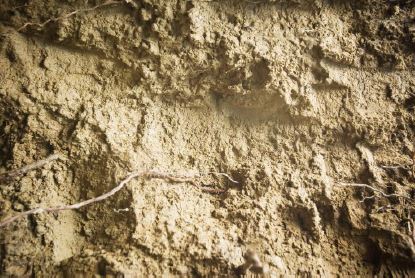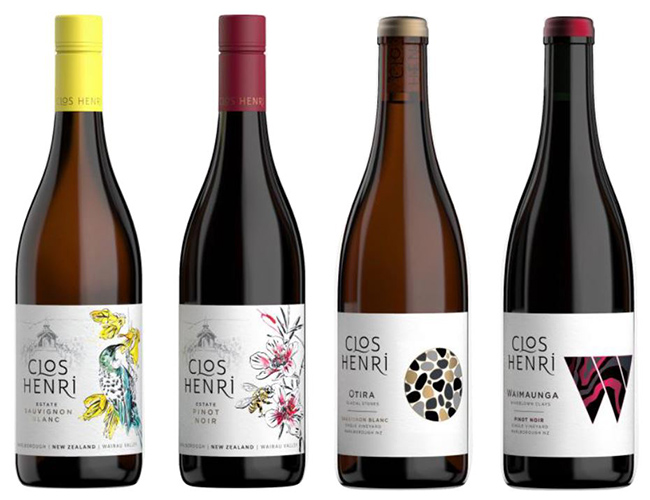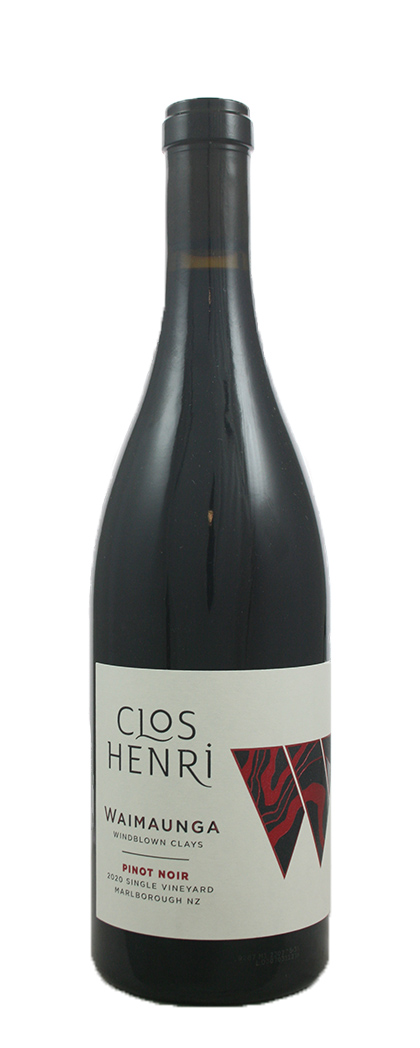French savoir-faire in Marlborough
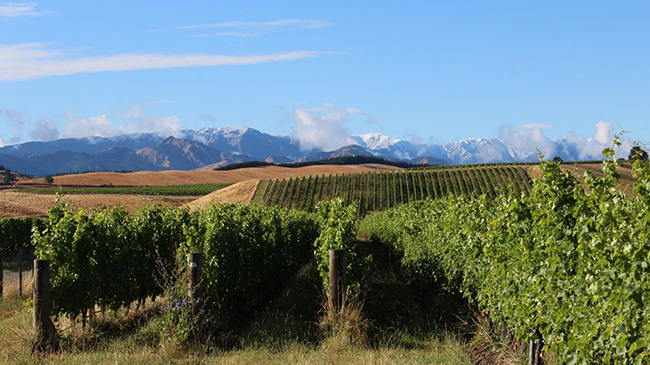
When Jean-Marie and the late Rémi Bourgeois inherited the Henri Bourgeois estate, the brothers were inspired to explore the possibilities offered by international wine regions.
Their ‘Great Search’ spanned 12 years, finally leading them to Marlborough, New Zealand’s wine capital, in 2000. It was here in the Wairau Valley, carved by ancient glaciers over millions of years, that the pair found soils most similar to their native Sancerre. Quickly they identified the potential of the region to nurture premium Sauvignon Blanc and Pinot Noir.
Taken by the youthfulness and untouched nature of its soils, they fell in love with Marlborough and its terroir, along with its wines. With eight generations of pioneering winemakers behind them, they made the instinctive and emotive decision to set down roots in the region.
Rémi and Jean-Marie purchased 98 hectares of land in the Wairau Valley, proudly naming it ‘Clos Henri, in honour of their pioneering father and his commitment to producing world-class wines, ‘Clos’ being a French word which represents the ancient custom of enclosing a unique vineyard or precious garden, traditionally with a stone wall.
The aim was always a long-term one: to produce wines inspired by terroir, those elements that combine to reflect the entire region itself as well as describing the unique character of a single vineyard.
The domaine lies at the convergence of two distinct geological ages, is bordered by the Wither Hills on its southern boundary and is split by the Wairau fault line, which runs right through the centre of the vineyards.
There are three unique soil types: glacial stones and the two Waimaunga clays: Broadbridge clay and Wither clay. These soils are the result of significant earth-movements over millions of years, including the formation and retraction of glaciers during the Pleistocene Period, which spanned from around 1.8 million to 10,000 years ago.
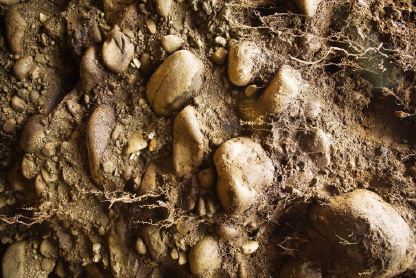
Such glaciers, in particular the Otira and Waimaunga glaciers in the Upper Wairau, shaped the valley, and also brought the alluvial deposits now found at Clos Henri. Glacial river stones were deposited during the Otiran stage, while both clays were the work of the Waimaunga age. The Alpine Fault, which crosses Marlborough at the Wairau Fault, also played a major role in paving the shape and soils of the estate. Significant earth movement, of around 480 kilometres, along the Alpine Fault has resulted in the Wairau Valley becoming home to metamorphic schist once found adjacent to similar rock in Southland, at the opposite end of the South Island. Traces of the Wairau Fault can be clearly seen on the ground in much of the Wairau Valley before the main visible trace splits into two near the confluence of two neighbouring rivers: the Wairau and the Waihopai.
As careful custodians of the land, the family has long taken significant pride in having an intricate knowledge of the land they occupy. It is their firm belief that wines reflect the environment they’re grown within, and it is of the utmost importance that we nurture and protect those environments.
Clos Henri wines illustrate the unique nature of the terroir and tells the story of the soils starting from the vines’ roots which are so entwined under the surface. Otira Glacial Stones yield elegant, mineral wines with a focus on finesse and great balance, while the Windblown Waimaunga tend to produce intense and generous wines that are textural, rich, and complex.
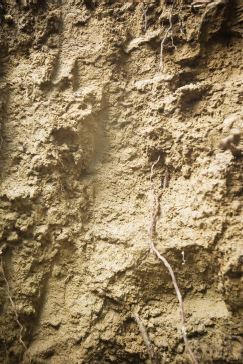
Clos Henri uses natural methods from the vineyard to the winery, is BioGro organic certified and is a member of Mana: Marlborough Natural Winegrowers. The estate has been fully certified organic since the harvest of 2013. Through their organic management of the estate, the intention is to show respect for the terroir by means of respect of the land. They believe organic practices preserve the sense of place, retaining healthy and alive soils for future generations.
As a result of organic practices, the soil is softer and moister with more humus, allowing better drainage and for the root systems to penetrate deeper. The vigour is more balanced, the plants are less susceptible to weather extremes, and the whole vineyard is humming with life.
Composting helps to maintain and sustain humus, bacterial and fungal life and promote earthworm activity. All the biodegradable wastes produced on the property become precious ingredients for the compost heap. This compost is spread in the vineyard annually, illustrating how winegrowing can be a full circle.
Building on their commitment to respecting the land, Clos Henri is devoted to the rehabilitation of native bush and wetland amongst the vineyard blocks. This restoration work encourages the restoration of wildlife including native birds and insects, which all contribute to increased biodiversity.
Since 2019, the estate has planted over 4,000 native plants including various species such as sedge, cabbage trees, Kahikatea, Kanuka, Tree Daisy, Kohuhu, Ribbonwood, Totara, Karamu and Kowhai.
We are mindful of conserving ecological balance and therefore have put extensive research into which natives work well in various places. Much like wine, New Zealand natives also tend to thrive in certain terroirs. For example, the pioneering Manuka and Kanuka trees thrive on our hilly clay blocks, while the Kowhai is best suited to the Otira glacial stones on the plains of our estate.
Each bottle of Clos Henri Sauvignon Blanc and Pinot Noir tells the story of its life and its origins in one of three unique soil types, without chemical inputs. Distinguished by its natural high acidity, Sauvignon Blanc adapts to its terroir like a chameleon, proudly celebrating the individual characteristics of its soils.
Sauvignon Blanc grown on Otira Glacial Stones expresses a tension and minerality reminiscent of those from Sancerre, while the Waimaunga Windblown Clays Sauvignon Blanc celebrates its terroir with generosity, fruit and salinity.
Pinot Noir expresses many nuances, depending on its terroir. It can vary enormously, but its essential characteristic is its charm. It dances on the palate, rather than overpowering it, giving life to wines that are delicious and which stand out for their freshness. Pinot Noir from Waimaunga Windblown Clays shows great intensity and generosity.
2023 marks the 20th anniversary of Clos Henri and the transition from youthfulness to maturity. The vines are truly expressing their individual character. Organic and biodynamic farming has continued to elevate the quality of the grapes. As a result, they have decided to “rebrand.” The Petit Clos wines, sourced from the younger vines, a nod to Marlborough’s youthful intensity, is now called Clos Henri Estate. The wines have vivacity, brightness, and refreshing fruit flavours. The Clos Henri wines are now single vineyards with complexity and elegance, showcasing their respective terroirs, and with an intensity that allows them to age particularly well.
Whereas so many Marlborough wineries go for high yields and short cuvaisons to get the wines into the bottle as rapidly as possible, Clos Henri prefers to pick ripe concentrated grapes and let the juice settle on the lees for a period to gather texture and complexity. The Otira Sauvignon Blanc has 15% of used French barrels and spends around 8 months on the lees. This is showing terrific minerality, a gastronomic Sauvignon that develops in the mouth (as well as in the bottle).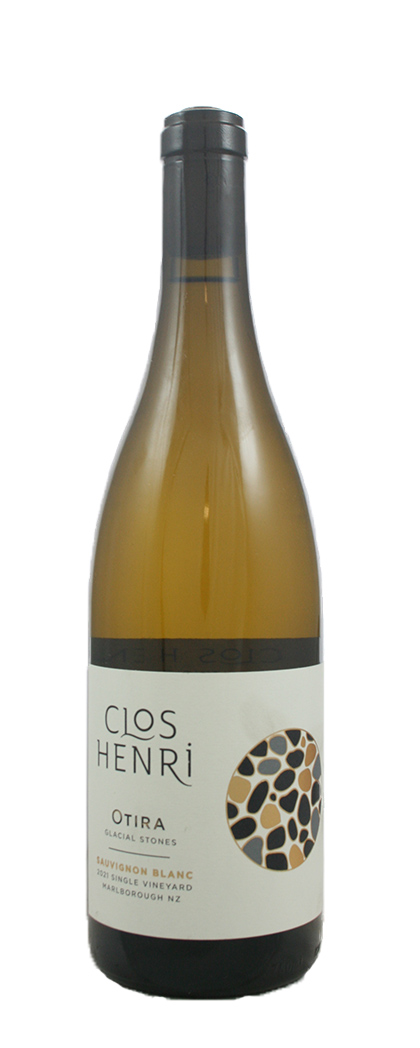 The Estate Pinot Noir, from a mix of glacial stones, Wither & Broadridge clay soils, is wild fermented in stainless steel and then aged in larger format used barrels. The Waimaunga single vineyard Pinot from Waimaunga windblown clays, is wild fermented with some whole bunch fruit, and aged in French oak barrels, 20% new. From 20-year-old vines, this is a beautiful expression of Pinot Noir, being full-bodied, but aromatic and fine.
The Estate Pinot Noir, from a mix of glacial stones, Wither & Broadridge clay soils, is wild fermented in stainless steel and then aged in larger format used barrels. The Waimaunga single vineyard Pinot from Waimaunga windblown clays, is wild fermented with some whole bunch fruit, and aged in French oak barrels, 20% new. From 20-year-old vines, this is a beautiful expression of Pinot Noir, being full-bodied, but aromatic and fine.
The Clos Henri estate is part winery and part estate. There is a deep commitment to the land, and we are seeing the results now in the wines. The wines feel more integrated and relaxed. We notice the layers from lees and barrel-ageing, but most of all from ripe concentration. These wines are not about extraction or obvious aromatics; they merely reflect the understanding and channelling of terroir.
*
Interested in finding out more about the new-look wines of Clos Henri? Contact us directly:
shop@lescaves.co.uk | sales@lescaves.co.uk | 01483 538820


